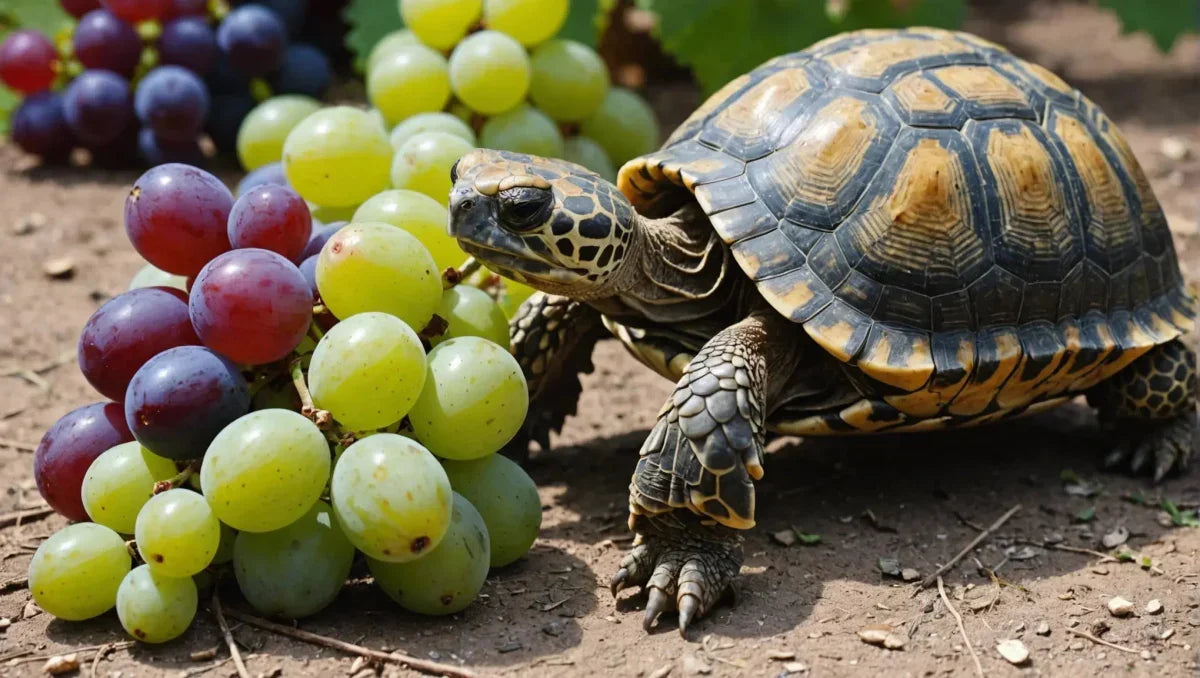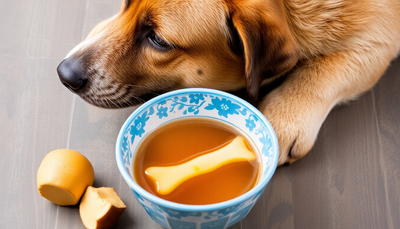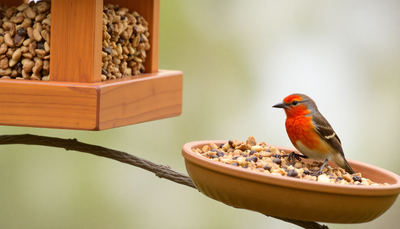
Curious about whether Russian tortoises can safely eat grapes? This introduction will provide you with the essential information you need to know about including grapes in your Russian tortoise's diet. Understanding the dietary habits of your pet is crucial for their well-being, and knowing what foods are safe for them is a key part of responsible pet ownership. In this guide, we will explore the suitability of grapes for Russian tortoises, potential risks associated with feeding them this fruit, and recommended guidelines for incorporating grapes into their diet. By the end of this article, you will have a clear understanding of whether grapes can be a healthy occasional treat for your Russian tortoise and how to ensure their nutritional needs are met. Let's delve into the fascinating world of Russian tortoises and their dietary preferences!.
Understanding Russian Tortoises' Diet
Natural Diet in the Wild
Russian tortoises in the wild primarily feed on a variety of grasses, weeds, flowers, and leafy greens. Their diet mainly consists of fibrous vegetation, which helps in digestion and provides essential nutrients. This diet is crucial for their overall health and well-being, as it provides the necessary fiber for proper digestion and essential vitamins and minerals for their growth and development. In the wild, Russian tortoises are opportunistic feeders, grazing on whatever vegetation is available in their habitat.
Recommended Diet in Captivity
When kept as pets, it is important to replicate their natural diet as closely as possible. A balanced diet for Russian tortoises in captivity should include a mix of dark, leafy greens such as collard greens, kale, and dandelion greens. These greens are rich in vitamins A and C, which are essential for maintaining their shell and overall health. Additionally, providing occasional treats like carrots or bell peppers can add variety to their diet and be a source of enrichment for the tortoise.
Foods to Avoid
Certain foods can be harmful to Russian tortoises and should be avoided. These include high-protein foods like meat or dairy products, as well as toxic plants such as rhubarb or avocado. Feeding them the wrong foods can lead to health issues, so it's crucial to research and provide a suitable diet for your Russian tortoise. Avoid feeding them processed foods, sugary treats, or foods high in fat, as these can cause digestive problems and lead to obesity.
Calcium and Vitamin Supplements
In addition to a balanced diet, Russian tortoises may require calcium and vitamin supplements to ensure they are getting all the nutrients they need. Calcium is especially important for maintaining strong bones and a healthy shell. Dusting their food with a calcium supplement or providing a cuttlebone for them to gnaw on can help meet their calcium requirements. Vitamin supplements, particularly vitamin D3, are also essential for proper calcium absorption and overall health.
Hydration
Proper hydration is crucial for Russian tortoises, both in the wild and in captivity. Ensure they have access to clean, fresh water at all times. While Russian tortoises can derive some moisture from their food, providing a shallow water dish for soaking and drinking is important, especially during hot weather or when the tortoise is hibernating.
Monitoring and Adjusting Diet
It's important to monitor your Russian tortoise's diet and adjust it as needed based on their activity level, growth rate, and overall health. Regularly check their body condition and ensure they are neither underweight nor overweight. Consulting a reptile veterinarian or a knowledgeable exotic pet specialist can help you create a tailored diet plan for your Russian tortoise to ensure they live a long and healthy life.
Can Russian Tortoises Eat Grapes?
Feeding fruits to tortoises requires careful consideration to ensure the well-being of your shelled companion. Let's delve into the specifics of feeding grapes to Russian tortoises and explore the potential risks and benefits associated with this practice.
General Considerations When Feeding Fruits to Tortoises
Before introducing any new fruit into your Russian tortoise's diet, it's essential to understand their dietary requirements. While fruits can offer essential vitamins and minerals, they should only constitute a small portion of their overall diet. Always prioritize leafy greens and other vegetables as the primary components of their meals.
Specific Discussion on Feeding Grapes to Russian Tortoises
Russian tortoises, with their unique dietary needs, pose a particular case when it comes to feeding grapes. Grapes are known to be high in sugar, which can be detrimental to the health of these tortoises if provided excessively. However, when offered in moderation and as an occasional treat, grapes can add variety to their diet. It's crucial to remember that moderation is key to maintaining a balanced and healthy diet for your Russian tortoise.
Potential Risks or Benefits
The debate within the reptile community regarding the suitability of grapes for Russian tortoises continues. While some argue against feeding grapes due to their sugar content and potential to lead to obesity and other health issues, others advocate for the occasional inclusion of grapes to provide additional nutrients.
Consulting with a reptile veterinarian or an experienced reptile keeper can offer valuable insights tailored to your tortoise's specific needs. They can help you navigate the delicate balance between offering treats and maintaining a nutritionally sound diet for your Russian tortoise.
Additional Considerations for Feeding Russian Tortoises
Apart from grapes, there are several other fruits that can be considered for your Russian tortoise, such as berries, melons, and apples. It's important to research each fruit's nutritional content and potential impact on your tortoise's health before incorporating it into their diet.
When offering fruits, always ensure they are fresh, thoroughly washed, and cut into appropriately sized pieces to prevent choking hazards. Remove any uneaten fruits promptly to maintain cleanliness in your tortoise's enclosure.
Monitoring Your Russian Tortoise's Health
Regularly monitoring your tortoise's weight, activity levels, and overall health is crucial in identifying any dietary imbalances or health issues. Keep a record of their diet, including the types and amounts of fruits offered, to track their nutritional intake and make any necessary adjustments.
While grapes can be a source of vitamins and minerals for Russian tortoises, they should be offered sparingly and as part of a diverse and balanced diet. Understanding your tortoise's individual needs and monitoring their dietary intake will ensure they lead a healthy and happy life.
Alternatives to Grapes for Russian Tortoises
Safe Fruits and Vegetables
When considering alternatives to grapes for your Russian tortoise, it is essential to offer a diverse range of safe and nutritious options to ensure their health and well-being. While grapes are not recommended due to their high sugar content, there are numerous fruits and vegetables that can be included in your tortoise's diet.
-
Bell Peppers: Rich in vitamin C and low in oxalates, bell peppers are a fantastic alternative to grapes. They provide essential nutrients without the harmful effects of excess sugar.
-
Zucchini: With its high water content and minimal oxalate levels, zucchini is a hydrating and safe choice for your Russian tortoise. It offers variety and nutrition to their diet.
-
Endive: A fiber-rich leafy green with low oxalate levels, endive is a nutritious option for your tortoise. It contributes vital nutrients while being safe for regular consumption.
-
Berries: While grapes should be avoided, certain berries like strawberries and blueberries can be given in moderation as a sweet treat. These berries have lower sugar content and can add flavor to your tortoise's diet.
Balanced Diet Recommendations
In addition to including safe fruits and vegetables, maintaining a balanced diet is crucial for the overall health of your Russian tortoise.
-
Leafy Greens: Incorporate a variety of leafy greens such as collard greens, mustard greens, and dandelion greens into your tortoise's diet. These greens are packed with essential vitamins and minerals necessary for their well-being.
-
Hay or Grasses: Ensure that high-fiber hay or grasses are readily available in your tortoise's habitat. These fibers aid in digestion and promote gut health, contributing to a healthy digestive system.
-
Calcium Supplements: To prevent calcium deficiencies and ensure healthy shell growth, consider dusting your tortoise's food with a calcium supplement. This is particularly important for the development and maintenance of strong shells.
-
Protein Sources: Provide occasional protein sources like cooked eggs or mealworms to meet your tortoise's protein requirements. These protein-rich foods are essential for various bodily functions in your tortoise.
By diversifying your tortoise's diet with a wide array of safe fruits, vegetables, and balanced nutrients, you can support their overall well-being and help them thrive in captivity. Remember, consulting with a reptile veterinarian for personalized dietary recommendations tailored to your Russian tortoise's specific needs is always recommended to ensure their optimal health.
Conclusion
While grapes can be an occasional treat for Russian tortoises, they should be fed in moderation due to their high sugar content. It is important to prioritize a balanced diet consisting of mainly dark, leafy greens and other vegetables to ensure the overall health and well-being of these unique reptiles. Remember, always consult with a veterinarian or reptile specialist for specific dietary recommendations for your Russian tortoise.






